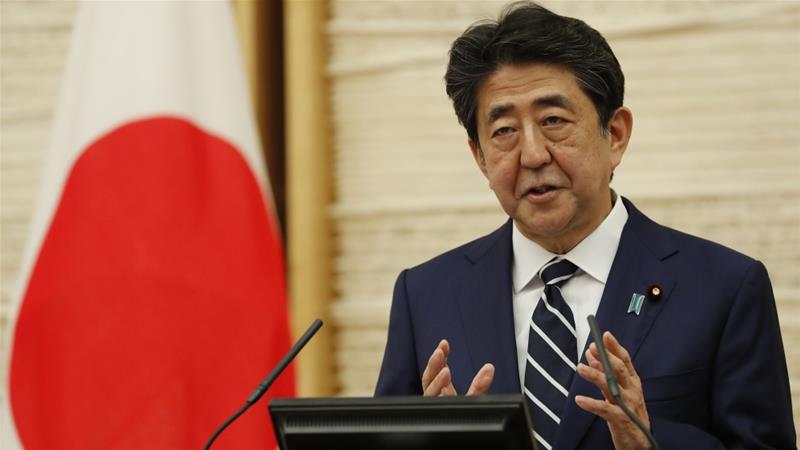Former Japanese Prime Minister Shot
Former Japanese prime minister Shinzo Abe is in a “state of cardiopulmonary arrest” after collapsing while making a speech in the western city of Nara amid reports of gunfire.
NHK, Japan’s public broadcaster, said Abe – the country’s longest-serving prime minister until he resigned in 2020 – fell to the ground and appeared to be bleeding from the chest after being shot from behind with a shotgun on Friday morning.
NHK said a suspect, named by police as Tetsuya Yamagami, a resident of Nara in his 40s, had been taken into custody but provided no further details.
A witness to the attack told the broadcaster that the first shot caused Abe to stumble backwards, adding that he fell to the ground after the second shot.
Amateur video foote showed Abe’s aides rushing towards him as smoke filled the air behind him. The clip does not show the moment he fell.
The suspected gunmen reportedly did not attempt to flee and was detained at the scene.
Abe, who was flown to hospital by helicopter, had been in Nara to make a campaign speech ahead of this Sunday’s upper house elections.
US ambassador Rahm Emanuel said the United States is “saddened and shocked” by the shooting.
“Abe-san has been an outstanding leader of Japan and unwavering ally of the United States,” Emanuel said in a statement. “The US government and American people are praying for the well-being of Abe-san, his family, and the people of Japan.”
Abe, a conservative lawmaker who quit abruptly as premier in 2007 after one year in the post, swept back for a rare second stint in 2012 pledging to revive a stagnant economy, loosen the limits of a post-world war two pacifist constitution and restore conservative values.
He was instrumental in winning the 2020 Olympics for Tokyo, cherishing a wish to preside over the Games and even appeared as Nintendo video game character Mario during the Olympic handover.
Abe was know for his “Abenomics” policies to lift the economy out of deflation, and beefed up Japan’s military and sought to counter China’s growing clout in a historic two-term tenure.
He became Japan’s longest-serving premier in November 2019, but by the summer of 2020, public support had been eroded by his handling of the Covid-19 outbreak as well as a series of scandals including the arrest of his former justice minister. He resigned without presiding over the Games, which were postponed to 2021 due to the pandemic.




